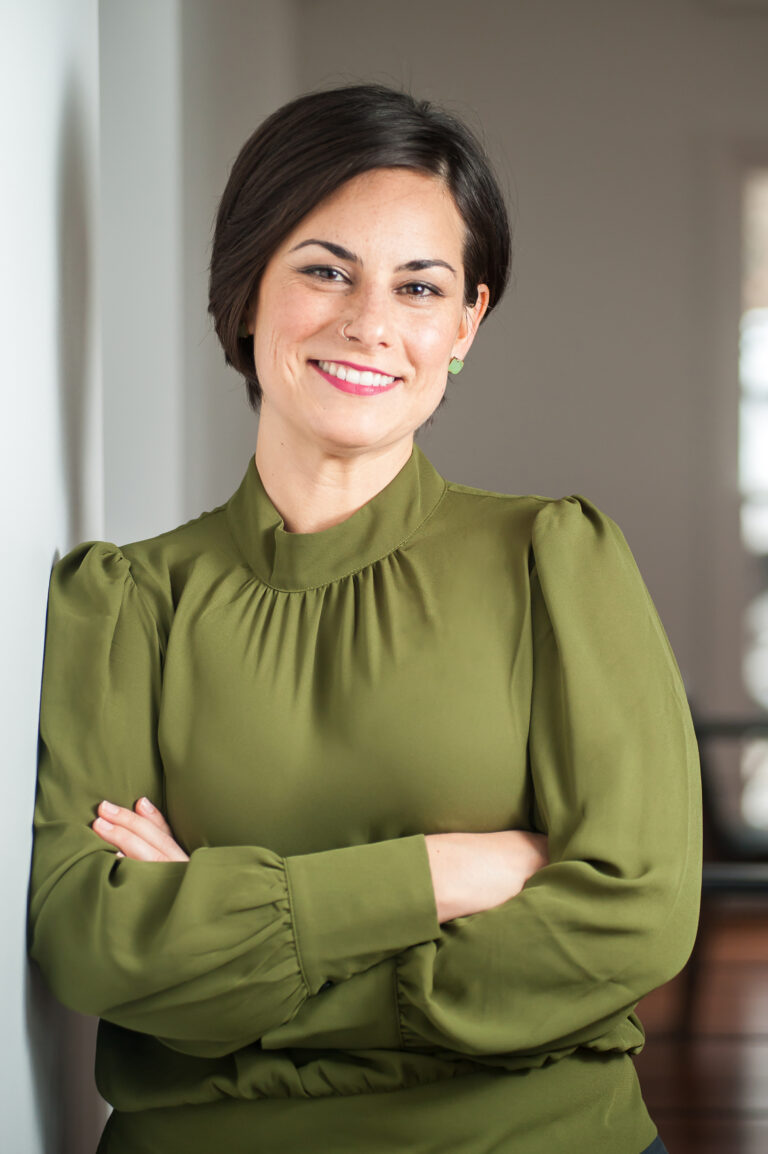Safer communities and flourishing citizens require conversations about the importance of second chances. A conversation with The Just Trust Founder and CEO Ana Zamora.

The Just Trust is on a mission to tackle the incarceration crisis and address public safety side by side. By partnering with organizations across the political and ideological spectrum, The Just Trust helps advance smart solutions to shrink the footprint of the justice system in American lives and create a system that prevents crime, centers safety, and fosters real accountability, rehabilitation, and healing. Their core activities include strategic advising, real-time public opinion and messaging research, narrative work, and grantmaking.
Many of The Just Trust’s 200+ grantees are—like Prison Fellowship®—focused on second chance advocacy and work. We talked to Founder and CEO Ana Zamora of The Just Trust to learn about why and how they are committed to opening doors for people with a criminal record.
Prison Fellowship: Why are second chances important for people with a criminal record?
Ana Zamora: Today, more than 1 in 2 American adults have an immediate family member who was or is incarcerated. And at least 70 million people have some form of criminal record impacting their lives. These statistics show just how far reaching our justice system is—including to my own family. We can't treat this many people as though they are beyond redemption or repair. People with a criminal record are just that: people. They're our neighbors and our family members. They are people like my brother, who needed a different path and a second chance. If we want to live in a safe and just community—not to mention one with a thriving economy—we can’t leave justice involvement out of the conversation.
What happens when people are denied second chances?
When we exclude people from second chances, we create permanent barriers to their ability to thrive. Our justice-impacted community members deserve the opportunity to not only come home, but to get jobs, access housing, rebuild their lives, and move on from whatever put them in contact with the justice system in the first place. That's what will make us all safer. That’s what sets people up for success.
How have you seen second chances benefit society at large?
We've all benefited from second chances at some point in our lives, even those of us who have never been directly in contact with our justice systems! I work and interact with people every day who have benefited from second chances after arrest or incarceration. They are some of the smartest, most passionate, and hardworking people I’ve ever met. And I know that states and communities that have prioritized second chances have seen the benefits—in people returning to their communities safely, in people gaining employment, and in ultimately shrinking the number of interactions with the justice system overall.
How can individuals and businesses help open doors for people who need a second chance?
This critical work all starts with changing what we have misunderstood. For decades we've been told people who end up arrested or incarcerated are inherently bad. The reality is so much more nuanced and so much more human. At the individual level, we need people to work with organizations like Prison Fellowship to get proximate to these systems and these people. Changing what we think about people in our justice systems is the first step to opening doors for second chances in our communities. Thankfully, there are also now thousands of businesses that make it a priority to hire people who have been through the justice system, from mom-and-pop shops all the way up to Fortune 100 companies like JPMorgan Chase & Co.
WHAT IS SECOND CHANCE MONTH?
Prison Fellowship spearheaded Second Chance Month® in 2017. Since then, multiple U.S. presidents and more than 25 states have recognized Second Chance Month. More than 800 organizations, congregations, and businesses have joined Prison Fellowship as official Second Chance Month partners. As a result of these efforts, millions of people know of the barriers faced by people with a criminal record and how to unlock second chances for people who dream of a better tomorrow.
DID YOU ENJOY THIS ARTICLE?
Make sure you don't miss out on any of our helpful articles and incredible transformation stories! Sign up to receive our weekly newsletter, and you' ll get great content delivered directly to your inbox.
Your privacy is safe with us. We will never sell, trade, or share your personal information.